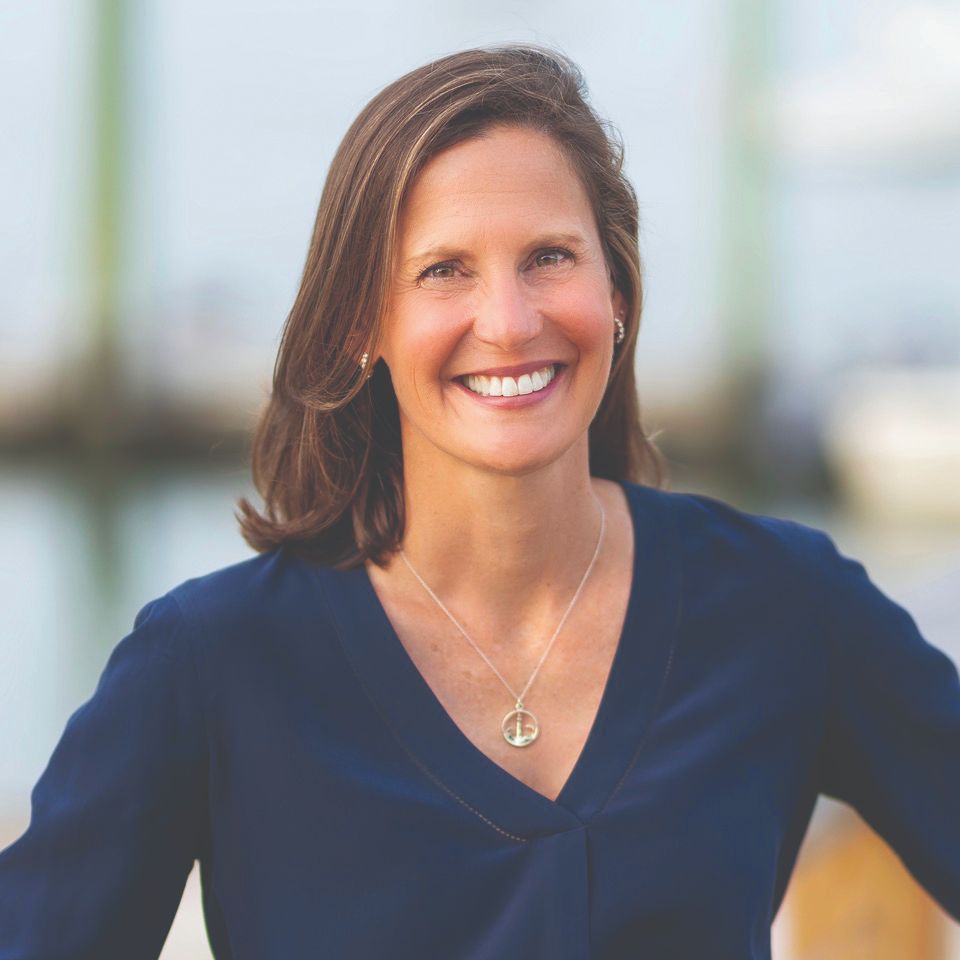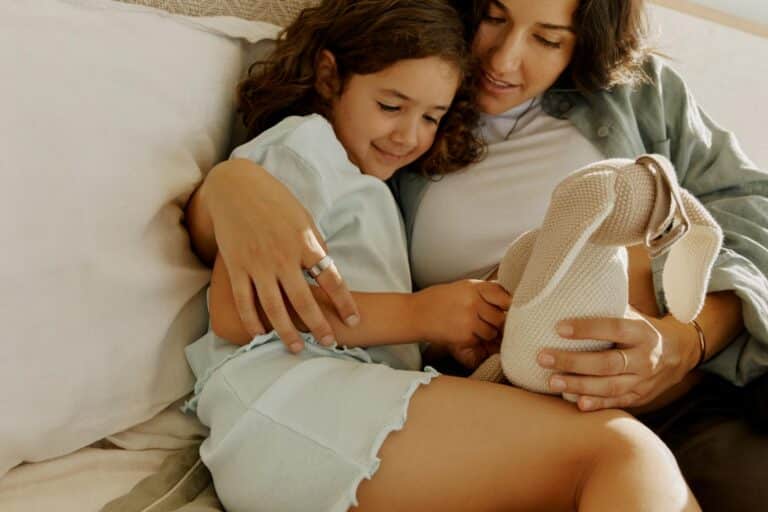As a medical student at U.C. San Francisco, I had the opportunity to attend a lecture on depression and mental health. Even though I rarely missed a class, I decided to stay home that day and study something else. After all, I knew what depression looked like. As a teenager, I had seen family members I loved struggle and suffer with depression. So as a medical student, I had no interest in hearing more about depression or entertaining any thoughtful conversation about it.

Fast forward to today and, as the founder and managing partner of Sound Beach Pediatrics, I advocate open conversation about this topic inside and outside of the office. Since 2018, I have given talks to middle school students at Greenwich Country Day School on depression and anxiety. What explains this evolution? Why do I seek to open up conversation on a subject that I so strongly avoided in my 20s?
Quite simply, I learned the hard way that “being tough” does not render you impervious to feelings of sadness or worry. My humbling process began in 1999. I was a newlywed and in my first year of pediatric residency at Harvard. I experienced a cervical disc herniation and the chronic pain forced me to take a month off to avoid surgery—a time of both rest and tough self- reflection. Then, in my 30s, shortly after moving to this area, our family experienced news of a rare and potentially life-threatening health condition. I spent several years as a quiet resident on the fringes of our community, struggling to enjoy a normal family life with the uncertainty that our family faced. And, just like many people, I’ve had other experiences since then that have brought to light human fragility in a very personal way.
RECOGNIZING THE PROBLEM
Feelings of sadness, grief and anxiety are normal human emotions. But left unattended, these emotions can grow like an unwieldy vine, spiral out of control and ultimately cause mental illness. In the U.S., about 7 percent of adults and 13 percent of teens have experienced major depression. In addition, 31 percent of adults experience an anxiety disorder of some kind in their lifetime, and 32 percent of teens have had an anxiety disorder, according to the most recent statistics from The National Institute of Mental Health—rates that may see an uptick as the COVID-19 global pandemic continues.
By shedding light on our own human vulnerability, we can have a meaningful conversation. The earlier we start this conversation, the more educated and equipped we are to help each other and ourselves.
That’s why I believe it’s so important to talk to our young people. While I am not a mental health care provider, I am a pediatrician on the front lines. I may be the first to identify mental health problems in my young patients and in mothers of my newborn infants. Now, I am fully committed to opening up the conversation.
I share the following with middle school students at GCDS: Depression can strike suddenly like a thunderstorm, or insidiously like rolling fog. Either way, it alters our view of the world around us—and our relationships. Anxiety is one of the most common mental health problems we face and often goes hand in hand with depression.
I teach students about some of the signs and symptoms of depression and anxiety disorders, and how to tease out the difference between a feeling (which can be a normal response) and a disorder (which is maladaptive, making day-to-day life a struggle). More importantly, I try to demystify depression and anxiety so students feel equipped to more easily and promptly identify a problem in themselves or others. Lastly, I discuss the importance of overcoming shame and getting help by tapping into available resources.
DEALING WITH AN UNSETTLING REALITY
Today, we are facing unprecedented challenges. The COVID-19 global pandemic has touched all of our lives in some way. According to the CDC, stress related to this pandemic can cause everything from trouble or changes in sleeping, eating and concentrating, to higher uses of alcohol and drugs.
People from all countries, ages, socioeconomic and educational backgrounds are feeling the rippling effects of COVID-19. Many of us have experienced an erosion of confidence in our government, our health care system, and in our own sense of personal safety and security. We are fearful and confused, as we consider ourselves as both potential victims or asymptomatic “vectors of infection” that could harm our family and friends, as well as innocent bystanders.
Meanwhile, we are experiencing unprecedented lifestyle restrictions (no early morning gym workout, no Todd’s Point run, no favorite coffee shop stop, to name some of my personal adjustments). We are mourning the loss of social connectedness that most of us never fully appreciated when we had it. While we are being told “it’s a marathon, not a sprint,” the finish line keeps moving further away. (And as someone who has run a marathon, the idea of a moving finish line is absolutely exasperating!)
As I process my own feelings in this crisis, I fall back on what I have learned from prior hardships. But, more importantly I push forward, considering what I can do to make the best of this situation.
If you know someone who needs mental health support, connect with them and provide resources. One good one: 211, a program from the United Way of Connecticut, supported by the state (211ct.org).
Finally, consider that in this crisis, you and your family are evolving in ways that will make you stronger, more capable and more empathetic in the future. I recently read an article written by a college admissions director with a line in her closing paragraph that I found so powerful: “You don’t have to change the world to be resilient. Being resilient changes the world.” I couldn’t agree more.
Coping During Covid-19
Consider how you can help others during this time. Focusing on the needs of others distracts us from dwelling on our own suffering. There are many volunteer opportu- nities in our communities, from donating meals to first responders to help- ing seniors stay con- nected. A quick Google search—or checking out local Facebook groups— should lead you in the right direction.
Connect creatively with those you love (and reconnect with old friends). My friends and family have been surprised by my random FaceTime calls!
Get some exercise and fresh air. I’ve set up a stationary bike on my front porch on days I’m not up for a long run.
Engage in activities that make you feel good, smile and laugh. I’ve played Monopoly with my kids and have taken many walks with my husband and dog. I’m cooking and baking with my youngest daughter. Meditation and/ or spiritual pursuits can also be helpful.

Read purposefully on a topic of interest or take up a project. I’m planning to learn more from Brené Brown, who was recently interviewed on 60 Minutes about her life work on the topic of vulnerability. Last year, I read a lot on the human spirit, grit and courage during WWII, which has given me useful perspective for today: Unbroken, The Boys in The Boat, The Nightingale, All the Light We Cannot See, and Beneath a Scarlet Sky are all great choices.
Dr. Katherine Noble (“Dr. Katy”) is a Harvard-trained pediatrician, who has practiced in lower Fairfield County for more than 15 years. She is the founder and managing partner of Sound Beach Pediatrics in Stamford, CT, and is the medical advisor for the Greenwich Public School system. She lives in Old Greenwich, CT, with her husband and three children.



